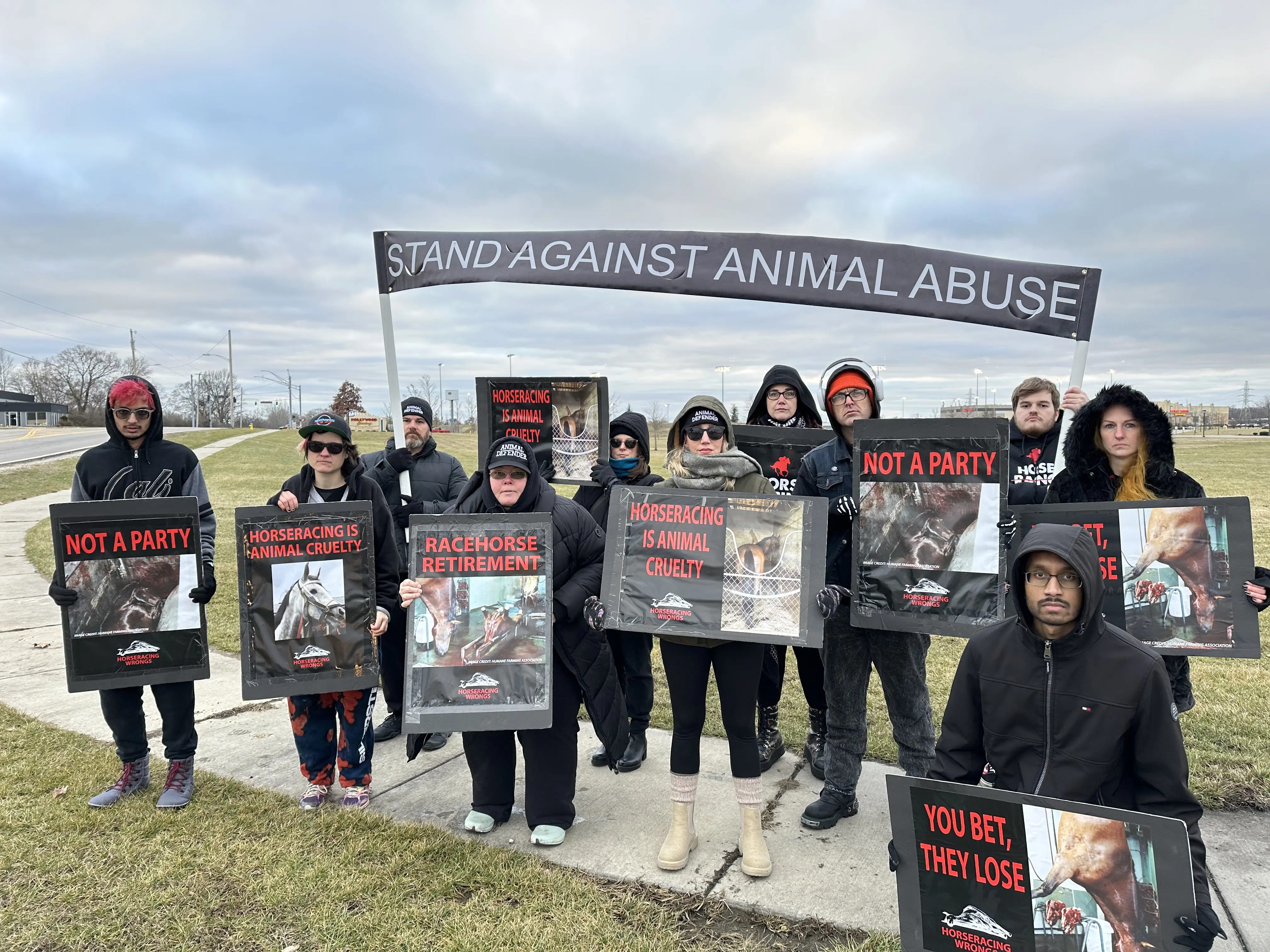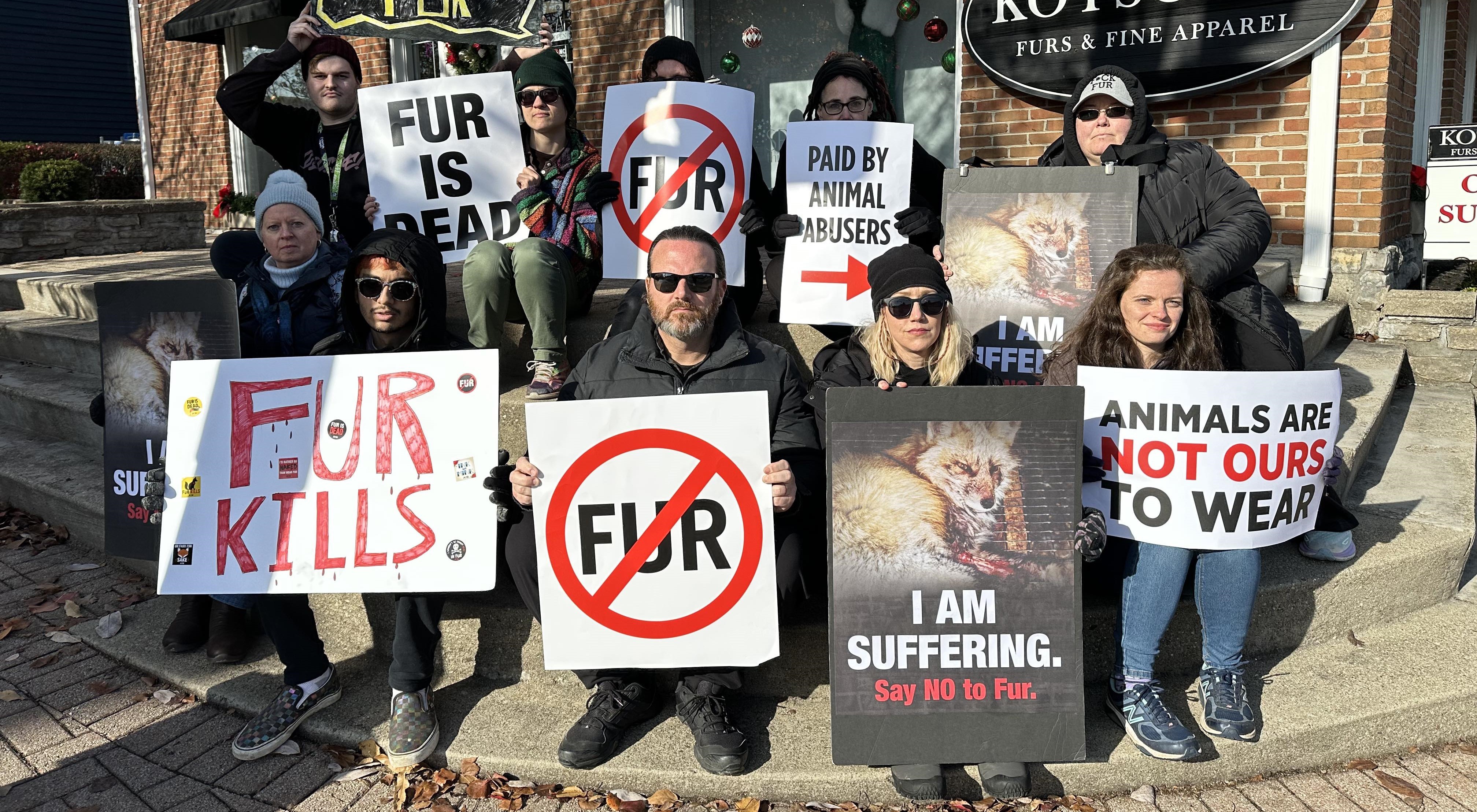

Our most common activism involves direct interaction with people when protesting or hosting demonstrations in public spaces. Talking to people directly allows us to have productive, meaningful discussion and encourage people to think critically about their choices and their role in animal suffering. There are several effective approaches to street activism.
The heart of activism is the people. Much of our activism goes under no official name, style, or banner, but is simply a combined effort of us all to fight for the animals. Where there is animal abuse, we're there to fight it. Our grassroots activism can range from displaying the horrors of animal agriculture on TVs to holding up signs and shouting into megaphones. If you would like to join our fight, you can join our Discord server.


Anonymous for the Voiceless activism is a specific demonstration-style activism involving the showcase of animal agriculture on TVs and outreachers to engage those interested in the footage. AV is unique in their approach, using anonymous face masks to ensure the focus is kept on the TVs, and a usage of black clothing to prevent distractions. These demonstrations are called Cubes of Truth, and we participate in these all over the state.
New people join activism on a regular basis, and mentorship helps to foster effective activism in those who are new to fighting for the animals. We have several seasoned activists that love to pass on their knowledge to new generations.
Animal Activism Collective's (AAC) mission is to educate and inspire our fellow humans to take action and equip them with what they need to fight for animal liberation. When someone is compelled to start their activism journey, they often don't know where to begin. AAC is here to encourage them, guide them, and lay a strong foundation on which their activism will stand for years to come.
AAM provides access to resources, knowledge, community support, and a launchpad for those who want to go to work for our nonhuman neighbors. AAC believes that by providing free and accessible education, one-on-one mentorship, and in-person events, it can create a powerful and effective community of animal activists who will work together to create lasting change for animals.
See more on their Linktree.


Ohio Occurrence is a multi-day animal activism event that tours the cities of Ohio. It was founded by an AAM mentor who, after attending an AAM live tour in GA, wanted to bring that energy to Ohio.
At Ohio Occurrence, volunteers advocate for suffering animals in several different industries through outreach, demos, protests…etc. This allows the volunteers to gain different experiences and to learn from seasoned activists. They can then take what they learn and use in their communities to advocate for animals.
You can contact them via email or follow on Facebook and Instagram for updates.
While we can't immediately change the entire agricultural industry, we do work with local business owners and government officials to commit to transitioning to a plant-based system. Petitions are a great way to garner attention for a specific issues, and is one of many methodologies we use to effect change.
The Plant Based Treaty is an international treaty that has been created as a companion to the UNFCCC Paris Agreement. The goal of the treaty is to promote a shift away from animal agriculture and towards a plant-based food system in order to actively reverse damage done to planetary functions, ecosystem services, and biodiversity.
The treaty can be endorsed by individuals, groups, businesses, and even entire cities. Boynton Beach, Florida, and Los Angeles, California are the first two U.S. cities to endorse the treaty. SWOARN is working to add our local cities to that list.


Project Animal Freedom strives to build a fully vegan midwest by 2056 by mobilizing activists across the Midwest, building thriving animal rights communities, and inspiring large-scale generosity to benefit more-than-human animals.
Slaughter Free Network is an international network of everyday people who care about our food system and want to change it for the greater good. Their efforts range from helping small, local communities fight off unwanted slaughterhouses to challenging massive food conglomerates to do better.
